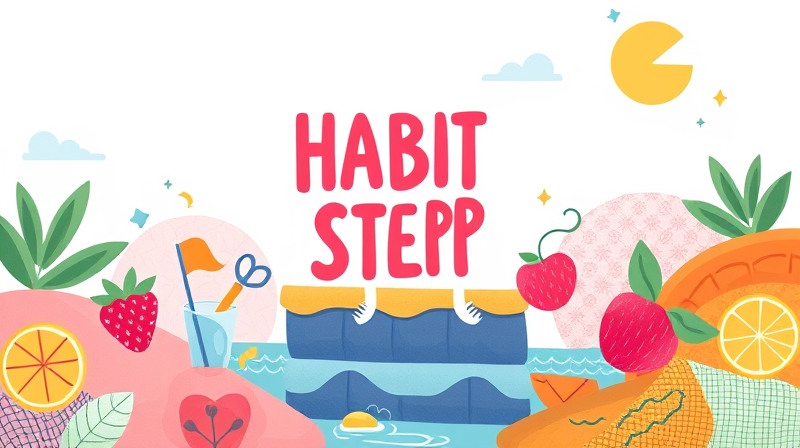Exhaustion is a challenge that affects us deeply, whether it arises from physical overexertion, emotional stress, or mental overload. It can seep into our daily routines and rob us of our energy, focus, and motivation. However, there is hope. With intentional self-care and the right strategies, you can counter exhaustion and reclaim balance in your life. In this article, we explore practical ways to recognize the signs of exhaustion and empower yourself to overcome it.
Understanding the symptoms of exhaustion is the first step toward a healthier lifestyle. When exhaustion begins to permeate your day, it's important to listen to your body and mind. This courageous act of self-awareness can become a turning point, leading you toward more mindful living.
Identifying the Signs of Exhaustion
Exhaustion can be subtle at first but tends to escalate if left unchecked. Take time to reflect on your daily state:
- Physical Signs: Persistent fatigue, muscle tension, headaches, and sleep disturbances.
- Emotional Indicators: Constant irritability, feelings of cynicism, and a dampened sense of motivation.
- Mental Challenges: Difficulty concentrating, memory lapses, and a pervasive feeling of mental fog that hinders decision-making.
Recognizing these early signs is critical. When your body and mind send clear signals of stress or fatigue, fearless self-reflection is key to initiating change.
It is essential to act on these warnings before the exhaustion deepens into chronic fatigue or complete burnout.
Strategies to Reclaim Your Energy
Fortunately, there are actionable strategies to help you restore balance. Each step you take toward self-care counts and builds a resilient foundation for your well-being.
1. Create and Maintain Healthy Boundaries: Set clear limits to protect your energy. Prioritize essential tasks and embrace the power of saying no. Avoid overcommitting and ensure you allocate specific hours for work and relaxation.
2. Embrace Mindfulness and Relaxation Techniques: Integrating practices like meditation, yoga, and deep breathing exercises into your daily routine can work wonders for your mental clarity. Journaling or self-reflection enables you to process emotions and highlight what truly matters, reducing stress one thought at a time.
3. Prioritize Restful Sleep: Sleep is the cornerstone of recovery. Aim for a consistent sleep schedule with 7-9 hours of quality rest each night. Consider short power naps to recharge, but ensure you also create a soothing pre-sleep routine that minimizes screen time and stimulates relaxation.
4. Nourish Your Body: Your diet is a powerful ally against exhaustion. Focus on balanced meals rich in essential nutrients such as iron, vitamin B12, and magnesium. Staying well-hydrated and moderating caffeine and alcohol intake can also enhance sleep quality and overall vitality.
5. Engage in Regular Physical Activity: Exercise is a remarkable tool to combat fatigue. Regular, enjoyable physical activities, even something as simple as a brisk walk or gentle stretching, can elevate your energy levels, enhance mood, and contribute to better sleep.
6. Cultivate Social Connections: Human beings thrive on connection. When you take time to engage with friends, family, or communities, you create a support system that helps dispel isolation. Don't hesitate to reach out for support at work or in personal relationships to share your struggles and celebrate small victories together.
7. Manage Stress Proactively: Identify your personal stress triggers and approach them with proactive solutions. Plan regular breaks, indulge in activities that bring you joy, and consider professional guidance if you find these feelings overwhelming. Remember, managing stress is an ongoing journey, one that requires persistence and self-compassion.
Every step you take to address exhaustion is a declaration of self-respect and a commitment to thriving rather than merely surviving. In this quest for balance, self-awareness is your most valuable tool.
The Path to Sustainable Well-Being
It is important to stay vigilant. Whether you are dealing with physical fatigue, mental fog, or emotional drain, acknowledge that each form of exhaustion is a message from within. By cultivating a lifestyle that respects these boundaries, you empower yourself to regain energy and enthusiasm for life.
If you sense that exhaustion is becoming an enduring part of your life, consider speaking with a healthcare provider or mental health professional. Seeking help is a strong and responsible step towards a happier, healthier future.
Incorporate these strategies one step at a time. Over time, small, consistent changes lead to significant improvements. Your journey to overcoming exhaustion is as much about celebrating progress as it is about making necessary adjustments. Embrace the process and trust in your ability to reclaim your energy and focus.
Remember: Every effort you put into caring for your mental, emotional, and physical health is an act of empowerment. Let the process of healing guide you, and use each day as an opportunity to nurture your well-being.








